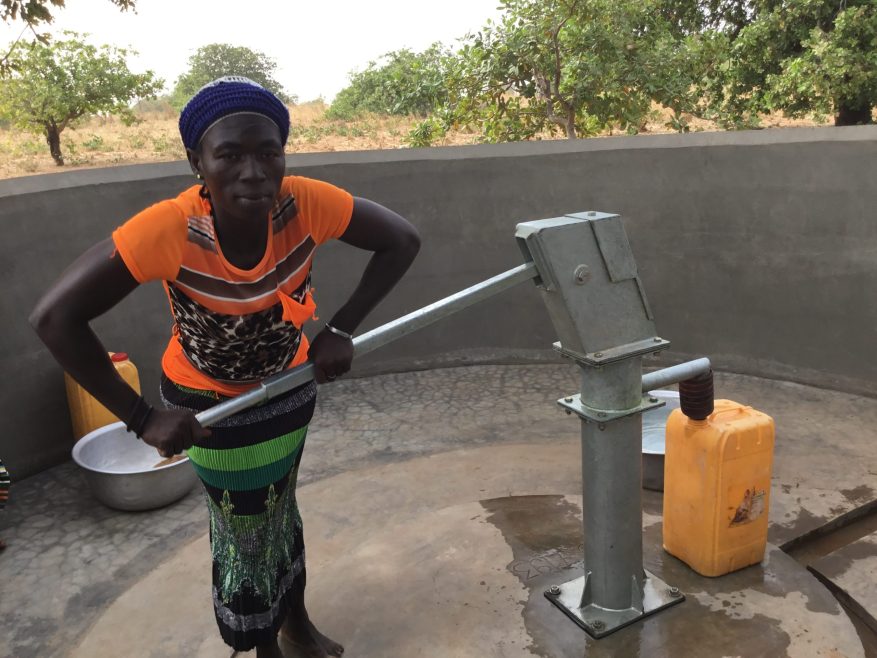“When water flowed out of the ground, the whole village cheered and celebrated all night,” recounts Kigalssoa Tchable from Nadjoungou village in Naki Est, Togo.
There was good reasons to rejoice. In Naki Est, northern Togo, more than 25% of the population doesn’t have access to drinking water. But a recent Self Help Africa project has changed all of that, facilitating the construction of six new boreholes in the region, including one in Nadjoungou village.
“Before, I struggled to provide my family with enough water. I had to wake up at dawn and walk up to 6km to fetch clean water,” Kigalssoa, a 38-year-old mother, explains. “Thanks to the new well, I can spend more time with my children and I can do more work.”
“Because we didn’t have access to clean water, neighbouring communities would reject us. Now we interact with them,” she adds.
The three year project, co-funded by the EU, will provide access to drinking water to more than 5,000 people in the Naki Est and Ogaro communities in the Savanna region of Togo, through the rehabilitation and construction of boreholes. The project will also provide sanitation facilities to up to 19,000 people, 54% of which are women. Villagers are also being trained in the maintenance and repair of those facilities.

